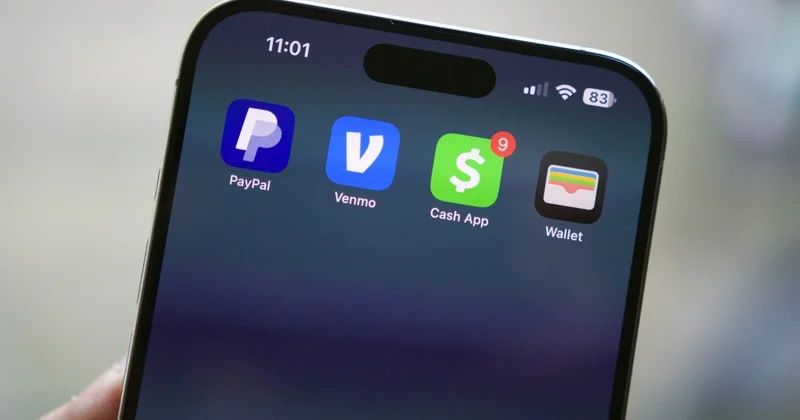Article Directory
For about an hour and a half on Thursday, the digital world held its breath. Or, more accurately, it screamed into the void of X and Downdetector comment sections. PayPal and Venmo, the twin pillars of modern peer-to-peer payment, just… stopped. And for a terrifying stretch of time, the companies acted like nothing was wrong.
While thousands, then tens of thousands, of users were hammering their phone screens, getting slapped with error messages, and wondering if their rent money had vanished into the ether, PayPal’s own status page was a sea of serene green checkmarks. "All systems operational," it chirped, a bald-faced lie in the face of a digital bank run.
It’s just an app, right? No, it's not 'just an app'—it’s the digital equivalent of your wallet, and for a solid 90 minutes, PayPal welded it shut without so much as a note on the door. You could almost hear the frantic tapping on screens across the country, the collective anxiety rising like a fever as people realized their money was sitting behind a locked, soundproof door. And on the other side, the person with the key was pretending not to hear the knocking.
The Art of the Corporate Shrug
After the chaos peaked and the digital fires started to die down, the official word finally came. First, a belated, jargon-filled update on their status page admitting a "Production Service Disruption." Then, the real gem, delivered to the media with all the sincerity of a hostage video: "PayPal and Venmo experienced a brief service disruption that has since been resolved." PayPal and Venmo were down – here's what we know about the payment platforms' outage
Let’s just sit with that phrase. A "brief service disruption."
That’s the kind of language you use when the office coffee machine is on the fritz. It's a masterpiece of corporate minimalism, designed to shrink a crisis down to the size of a minor inconvenience. This is like a plumber flooding your entire first floor, leaving a swamp in your living room, and then handing you a bill that notes a "brief moisture event." It’s not just an understatement; it's an insult. It’s a deliberate attempt to gaslight thousands of panicked users into thinking their legitimate fear was just an overreaction.

One user on Downdetector put it more honestly than any PR department ever could: "PayPal needs to figure this out, it's BS quite literally manipulating people's money and their lives."
That’s the part these companies always seem to forget. This ain't just code and servers. It’s people’s lives. It’s the money for groceries, the emergency fund for a vet visit, the payment to the babysitter. When your platform goes down, you aren't just a broken website; you are an active barrier between people and their ability to function. What does "brief" mean to the person who needed to send that money right then? What's the acceptable window for a financial services giant to just shrug and say "oops"?
Our Misplaced Digital Faith
Every time this happens—and it happens a lot—we get a stark reminder of the flimsy foundation our digital economy is built on. We’ve been sold this utopian vision of a seamless, frictionless financial future, but what we have is a system with single points of failure controlled by monolithic companies that offer zero transparency when things go wrong.
Why did it go down? Was it a server misconfiguration? A botched update? A security issue they aren't telling us about? We’ll never know. Offcourse we won't. We’re not entitled to an explanation. We’re just the users, the humble peasants lucky enough to be allowed to store our money in their digital kingdom. When the castle gates slam shut, we’re expected to just wait outside patiently until they decide to open them again. And we're just supposed to nod and say thank you...
It’s the same old playbook. First, deny there's a problem. Second, when the denial becomes untenable, admit a vague "issue." Third, fix it. Fourth, release a statement that says as little as humanly possible. Never apologize. Never explain. Just act like it never happened and hope everyone forgets by the next news cycle.
Then again, maybe I'm the crazy one here. Maybe we’ve all just accepted that this is the price of convenience. We hand over control of our financial lives to these tech giants for the ability to send twenty bucks with an emoji, and in exchange, we accept that sometimes, the whole system will just vanish for a bit. We get what we pay for, I guess.
Just a 'Brief' Little Problem, Huh?
So, it's over. Everything is "resolved." We can all go back to sending and receiving money as if nothing happened. But this wasn't a blip. It was a stress test, and what it revealed is the profound disconnect between the immense power these platforms wield and the accountability they're willing to show for it. Their carefully crafted, lawyer-approved statements aren't for our benefit; they’re for their shareholders. They’re not meant to reassure us, they’re meant to make the problem disappear. But for anyone who spent that hour staring at a frozen screen, the problem felt very, very real. And calling it "brief" doesn't change a thing.
